You can support us with your donations: paypal.me/leipzixp
We also have t-shirts for sale for 25€ (bio cotton and locally printed) in rosa, pink or black. Order per email (info@leipzixp.org) with color and size.

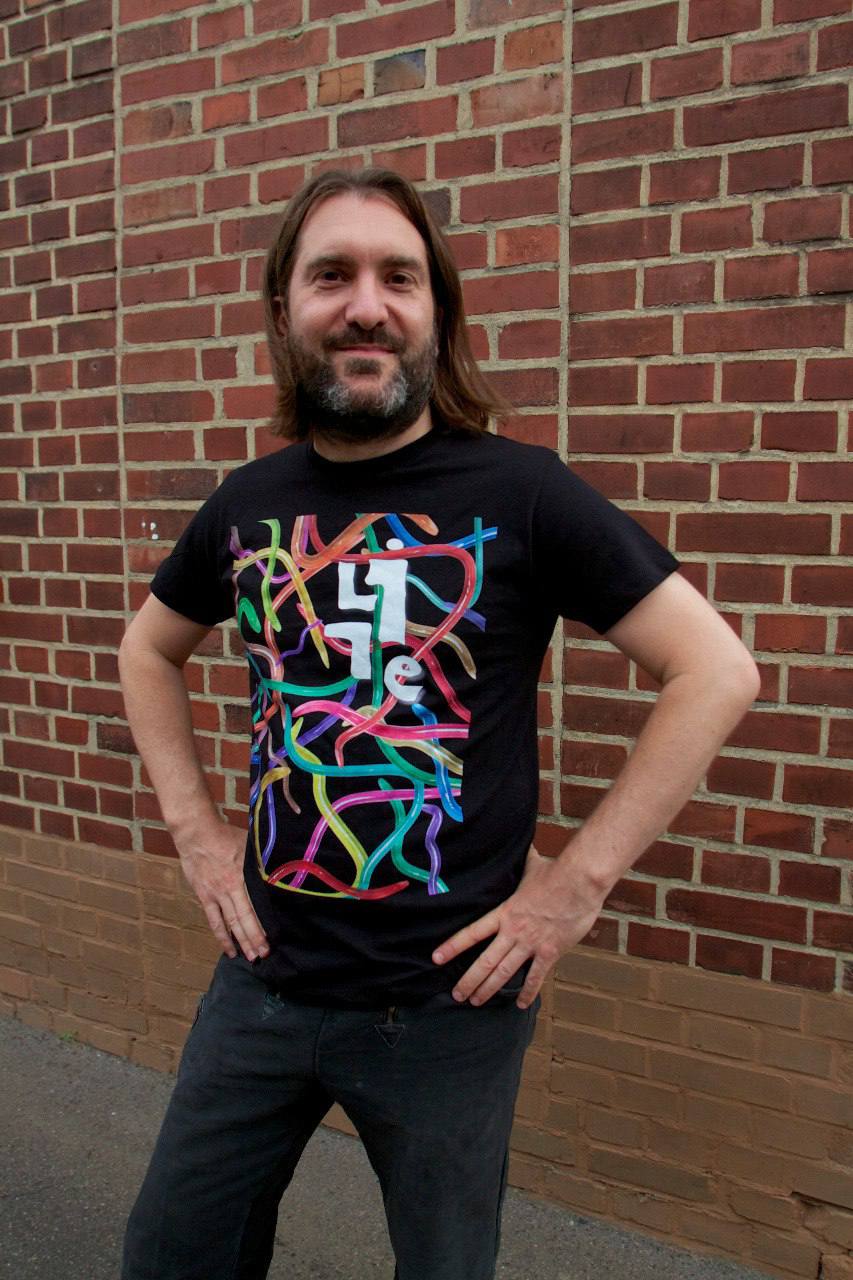
You can support us with your donations: paypal.me/leipzixp
We also have t-shirts for sale for 25€ (bio cotton and locally printed) in rosa, pink or black. Order per email (info@leipzixp.org) with color and size.


Das Ensemble Dedalus wird Occam Ocean (Hepta I) von Eliane Radigue spielen. Eliane ist eine Pionierin der elektronische und Drone Musik und ist seit den 50er in dem Bereich aktiv. Seit 2002 komponiert sie auch für akustische Instrumenten für Solo-Musiker.innen oder Ensembles. Occam Ocean ist eine Reihe von Kompositionen für Solisten, Duos, Trios oder größere Konstellationen.
Man kann über sie und mehrere andere Pionierinnen in dem Doku „Sisters with Transistors“ auf Arte erfahren: https://www.arte.tv/videos/104017-000-A/sisters-with-transistors/
Didier Aschour, Musiker und Leiter des Ensemble Dedalus, hat unsere Fragen beantwortet:
Dedalus wurde vor mehr als 25 Jahren gegründet, einige der Musiker.innen sind von Anfang an dabei, andere seit mehr als einem Jahrzehnt. Wir spielen das, was ich vor langer Zeit als experimentelle geschriebene Musik definiert habe. Wir haben eine kollektive Herangehensweise an die Musik, da die meisten Stücke, die wir spielen, flexibel in der Besetzung und/oder in der Form sind. Jeder Musiker muss entscheiden, was er/sie spielt, um seinen/ihren Platz in der Gruppe zu finden.
Das Ensemble ist in Toulouse angesiedelt, in der Nähe des GMEA-Zentrums für neue Musik in Albi, wo das Ensemble einen festen Residenz hat.
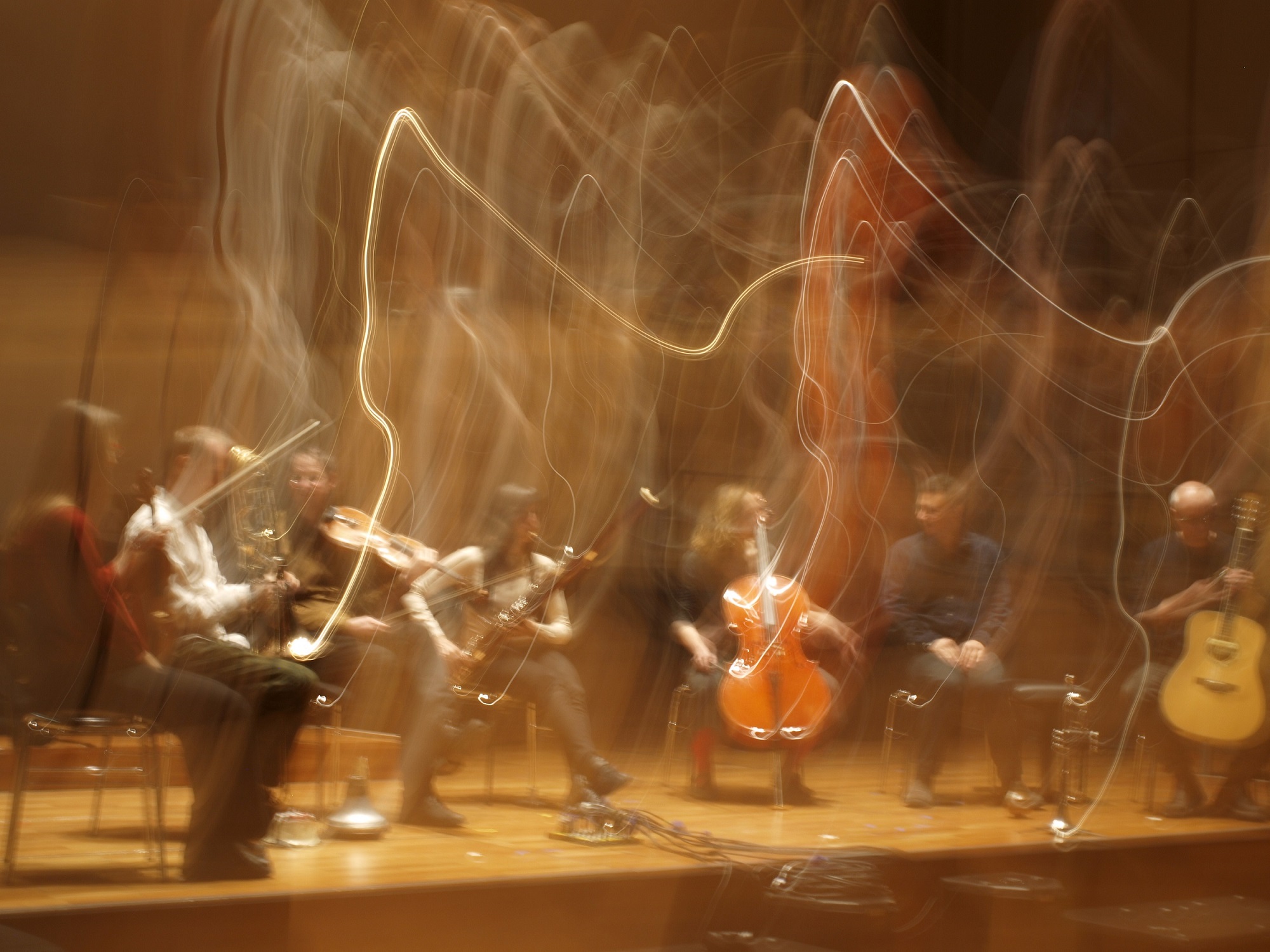 Bild von Erika Gacevičė
Bild von Erika Gacevičė
Die meisten Musiker für dieses Programm (Occam Océan von Eliane Radigue) hatten bereits mit Eliane in verschiedenen Kontexten zusammengearbeitet: als Solisten, im Duo oder mit einem Orchester. Silvia (Tarozzi) hat Eliane gefragt, ob sie ein Stück mit uns machen möchte.
Unsere Einflüsse haben ihre Wurzeln in der experimentellen Szene der 60er und 70er Jahre in den USA und Großbritannien.
Die Beziehung zu den Komponisten und vor allem zu den Partituren. Wie können wir in der Musik wir selbst sein? Wie können wir sie zu unserer machen. Das ist wahrscheinlich der beste Weg, der Musik zu dienen.
Ich fühle mich mehr unter staatlicher Kontrolle als unter kapitalistischem Druck! Wenn ich also den zweiten Teil der Frage anpasse: ohne diesen staatlichen Druck (und die Unterstützung) hätten wir wahrscheinlich schon aufgehört zu arbeiten.
Leider waren wir in letzter Zeit nicht sehr beschäftigt mit Dedalus. Aber nächstes Jahr haben wir 3 neue Aufträge und ein großes Projekt mit Cornelius Cardew’s Great Learning.
Schwierig zu beantworten! Aber wenn ich mich für eine entscheiden müsste, dann wäre es vielleicht das Konzert bei Musique Action 2012, bei dem das gesamte Ensemble (12 Musiker.innen) anwesend war, was ziemlich selten ist. Wir haben ein Doppelprogramm mit Tom Johnson und James Tenney aufgeführt.
Ich lebe sowohl in Albi als auch in Paris. Paradoxerweise sind in Albi die Geräusche, an die ich zuerst denke, die Lastwagen, die jeden Morgen um 7 Uhr für einen Lebensmittelladen entladen, während ich in Paris das Glück habe, in einem sehr ruhigen Viertel zu wohnen, wo die Vögel die auffälligsten Geräusche machen.
Ensemble Dedalus will perform Occam Ocean (Hepta I) by Eliane Radigue. Eliane is one of the pioneer of electronic and drone music and has been active in the field since the 1950s. Since 2002 she has also been composing for acoustic instruments for solo musicians or ensembles. Occam Ocean is a series of compositions for soloists, duos, trios or larger constellations.
You can learn about her and several other pioneers in the documentary “Sisters with Transistors” on Arte: https://www.arte.tv/videos/104017-000-A/sisters-with-transistors/.
Didier Aschour, musician and director of the Ensemble Dedalus, answered our questions:
Dedalus started more than 25 years ago, some of the musicians have been here from the beginning, some others for more than a decade. We play what I have defined a long time ago as experimental written music. We have a collective approach of the music since most of the pieces we play are flexible in instrumentation and/or in form. Each musician has to decide what he/she plays to find his/her place in the group.
The ensemble is settled in Toulouse close to GMEA center for new music in Albi where the ensemble has a permanent residency.
 Photo by Erika Gacevičė
Photo by Erika Gacevičė
Most of the musicians for this program (Occam Océan by Eliane Radigue) had already worked with Eliane in different contexts : solo, duo or orchestra. Silvia (Tarozzi) asked Eliane if she would like to make a piece with us.
Our influences take roots in the experimental scene of the 60’s and 70’s in the US and UK.
The relation with the composers and especially with the scores. How can we be ourselves in the music. How can we make it ours. This is probably the best way to serve the music.
I feel more under state control than under capitalist pressures! So if I adapt the second part of the question : without this state pressure (and support) we would have probably stopped working by now.
Unfortunately we haven’t been very busy lately with Dedalus. But next year we have 3 new commissions and a big project with Cornelius Cardew’s Great Learning.
Difficult to answer! But if I have to choose one it might be at Musique Action in 2012 where the complete ensemble (12 musicians) was present which is is quite rare. We performed a double program with Tom Johnson and James Tenney.
I live both in Albi and Paris. Paradoxically in Albi the sounds I first think of is made by the trucks discharging every morning for a food store at 7am whereas in Paris I am lucky to live in a very quiet neighbourhood where the birds make the most noticeable sounds.
Can you briefly introduce yourself?
My name is Artur. Born in Spain, I grew up in France and currently live in London. My main background is music but I have also studied art history, film and philosophy.
Where is your musical homebase and why?
My musical homebase is London where I originally came for studying an MA in Sound Arts and getting to know its improvised music scene.
What are your musical influences and inspirations?
Steve Lacy and Pauline Oliveros
What are your focuses in your music
Listening and improvisation.
Do you feel any capitalist pressures in your musical life? What would it be like without it?
I feel it constantly on many levels. In London, for instance, if there were more affordable living spaces available it could be easier for local musicians to live and develop their work and for those from other places to visit more often.
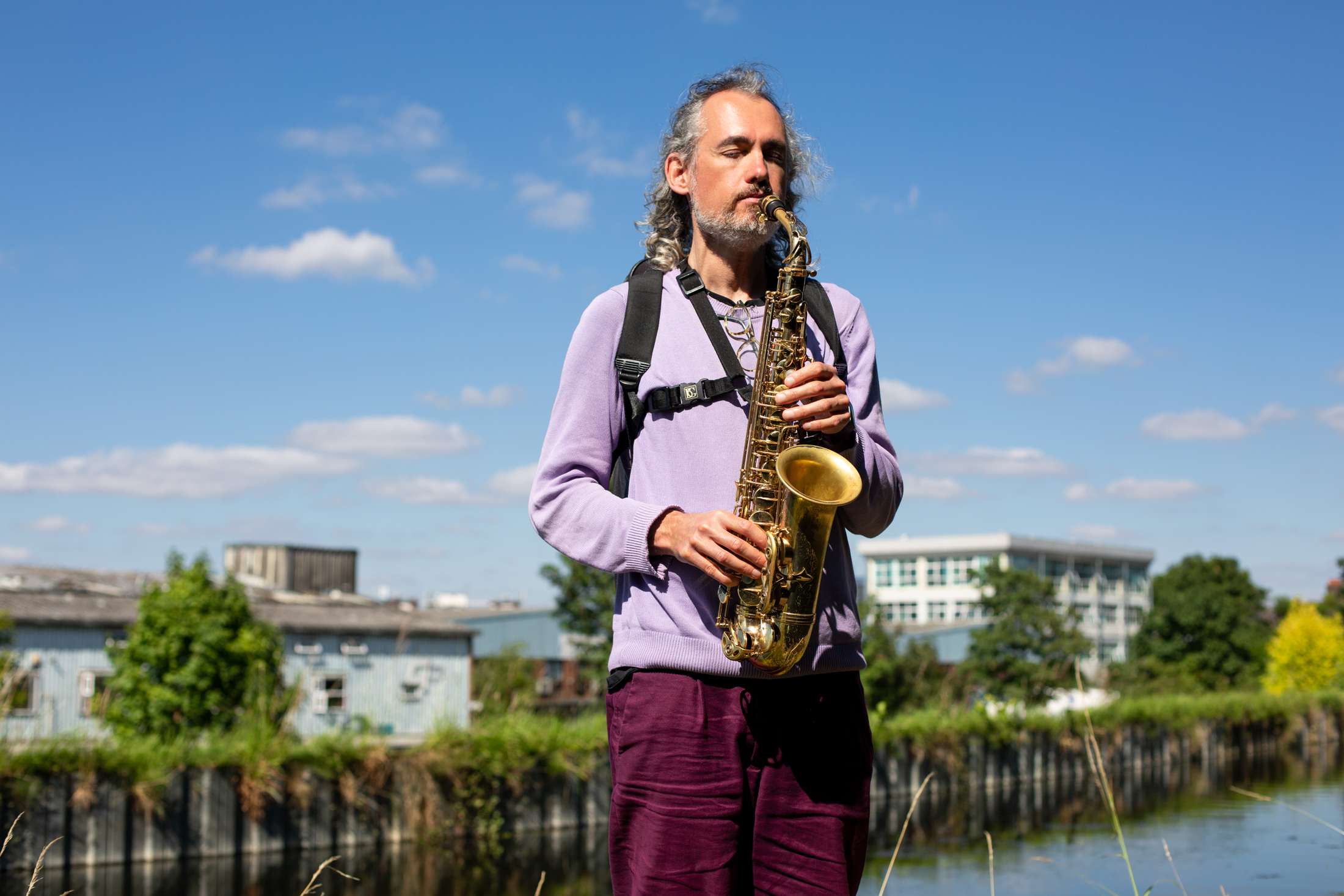 (c) Ana-Maria Molnar
(c) Ana-Maria Molnar
What have you been busy with lately and what are your projects for the near future?
I have been running listening workshops at House of Annetta, a new social centre created in London to support spatial justice and land reform. I have also been working on composer Eva-Maria Houben music and I am planning to perform her music in the next months.
What are your plans or wishes for the residency?
During this residency I would like to work on the idea and practice of a sonic hyperempathy. The term of hyperempathy, that I originally found in a science fiction book written by Octavia E. Butler, is used within my research in order to describe the capacity of “putting yourself in someone else’s ears”. Thus, I am working on methods to share with others a sonic experience. This starts by creating scores that proposes directions where to focus attention. Music expresses on the one hand individual responses to these propositions and on the other hand the promise of a collective form of attentiveness yet to be written and to be rewritten again and again.
What is your best concert memory and why?
I have very good memories of listening to Stéphane Rives and Christine Abdelnour at Le Marchand de Sables in Paris around 2005. It expanded my horizon of possibilities in regards to what kind of sounds a saxophone could produce and how to play it.
If your city was a sound, what would it be?
A solidary sound.
Kannst du dich kurz vorstellen?
Mein Name ist Artur. Ich bin in Spanien geboren, in Frankreich aufgewachsen und lebe jetzt in London. Mein Haupthintergrund ist die Musik, aber ich habe auch Kunstgeschichte, Film und Philosophie studiert.
Wo ist deine musikalische Heimat und warum?
Meine musikalische Heimat ist London, wo ich ursprünglich herkam, um einen MA in Sound Arts zu studieren und die improvisierte Musikszene kennenzulernen.
Was sind deine musikalischen Einflüsse und Inspirationen?
Steve Lacy und Pauline Oliveros
Was sind deine Schwerpunkte in deiner Musik?
Zuhören und Improvisieren.
Spürst du einen kapitalistischen Druck in deinem musikalischen Leben? Wie würde es ohne ihn aussehen?
Ich spüre ihn ständig auf vielen Ebenen. Wenn es zum Beispiel in London mehr bezahlbaren Wohnraum gäbe, wäre es für einheimische Musiker einfacher zu leben und ihre Arbeit weiterzuentwickeln, und für Musiker aus anderen Orten wäre es einfacher, öfter zu kommen.
 (c) Ana-Maria Molnar
(c) Ana-Maria Molnar
Womit hast du dich in letzter Zeit beschäftigt und was sind deine Projekte für die nahe Zukunft?
Ich habe Zuhör-Workshops im House of Annetta geleitet, einem neuen sozialen Zentrum in London, das sich für räumliche Gerechtigkeit und Landreform einsetzt. Außerdem habe ich mich mit der Musik der Komponistin Eva-Maria Houben beschäftigt und plane, ihre Musik in den nächsten Monaten aufzuführen.
Was sind deine Pläne oder Wünsche für die Residency?
Während der Residency möchte ich an der Idee und Praxis einer klanglichen Hyperempathie arbeiten. Der Begriff der Hyperempathie, den ich ursprünglich in einem Science-Fiction-Buch von Octavia E. Butler gefunden habe, wird in meiner Forschung verwendet, um die Fähigkeit zu beschreiben, “sich in die Ohren eines anderen hineinzuversetzen”. Ich arbeite also an Methoden, um mit anderen eine Klangerfahrung zu teilen. Das fängt damit an, dass ich Partituren erstelle, die vorschlagen, worauf man seine Aufmerksamkeit richten soll. Musik drückt einerseits individuelle Antworten auf diese Vorschläge aus und andererseits das Versprechen einer kollektiven Form der Aufmerksamkeit, die noch geschrieben und immer wieder neu geschrieben werden muss.
Was ist deine beste Konzerterinnerung und warum?
Ich habe sehr gute Erinnerungen daran, Stéphane Rives und Christine Abdelnour im Le Marchand de Sables in Paris um 2005 herum zu hören. Das hat meinen Horizont an Möglichkeiten erweitert, was für Töne ein Saxophon erzeugen kann und wie man es spielt.
Wenn deine Stadt ein Sound wäre, wie würde er lauten?
Ein solidarischer Klang.
Can you briefly introduce yourself ?
I am a composer and percussionist in the fields of experimental and improvised music. I studied percussion at the “Hogeschool voor de kunsten Arnhem” (NL) and have been living in Leipzig as a freelance musician and independent piano builder since 2016. My current focus is on the bands Holzig and H. C. Behrendtsen as well as my solo project, which is dedicated to song-like as well as sound research structures. The focus is on the Wurlitzer piano and the prepared bass drum, subtly enhanced by electronics.
Where is your musical homebase and why?
I live and work in Leipzig, a place that combines the advantages of a big city and a small town for me. I also appreciate the existing, ever-changing and changing subculture as well as a friendly network of local artists.
What are your musical influences and inspirations?
Extra-musical inspiration for me is generally being on the road in and living (gardening) with nature. I am also a big fan of releases from the Norwegian label Hubro.
What are your focuses in your music?
I would describe myself as a sonic explorer, sound-oriented musician with a penchant for melody.
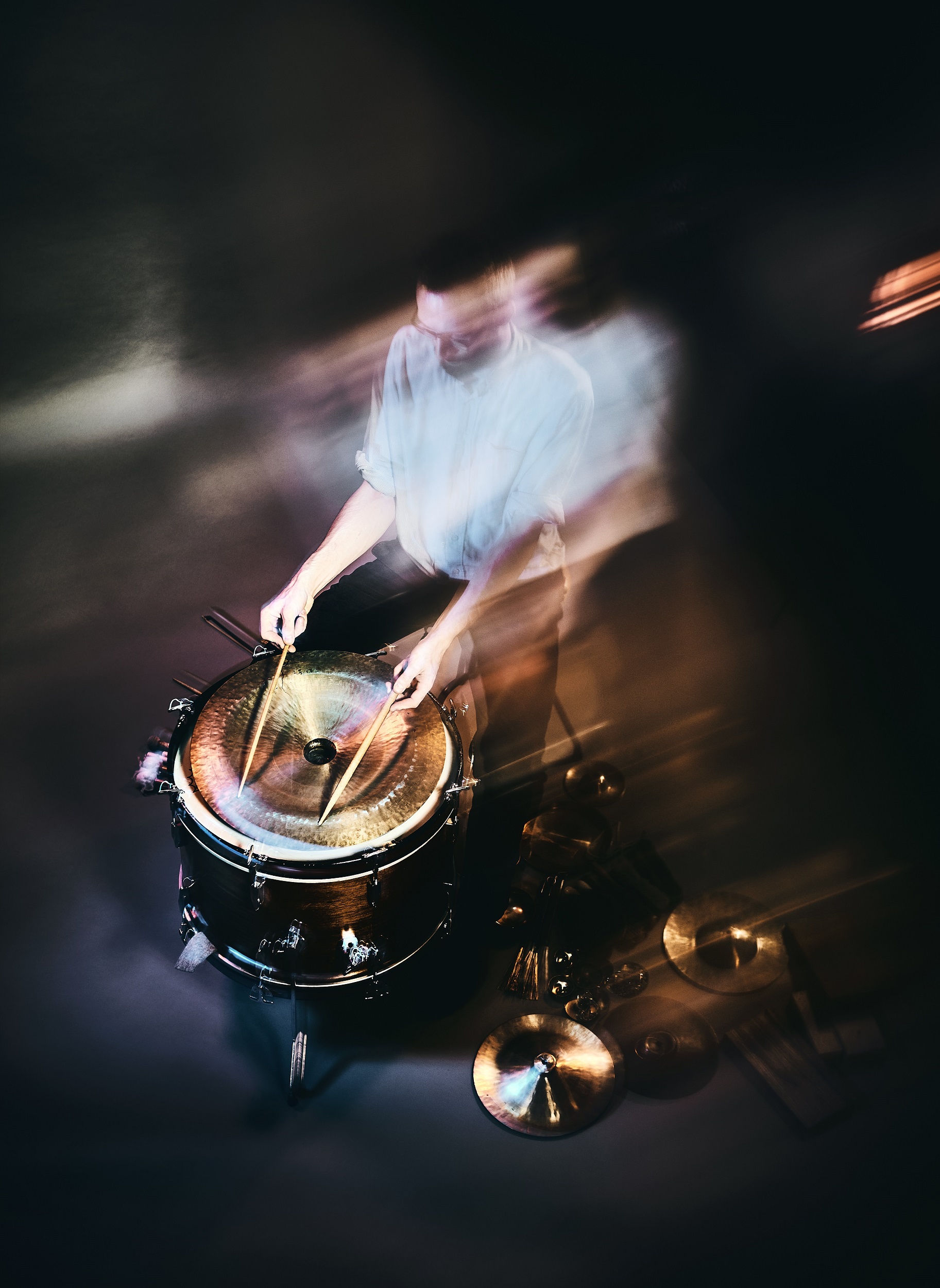 (c) Nikolas Fabian Kammerer
(c) Nikolas Fabian Kammerer
Do you feel any capitalistic pressure in your artistic life? What would it be like without it ?
I shift most of the capitalist pressure to my piano making craft. That is quite consciously chosen.
What have you been busy with lately and what are your projects for the near future ?
In autumn my second solo album will be released as well as the debut album of H. C. Behrendtsen. Preparations for this and concerts have been the focus lately.
What are your plans or wishes for the residency?
Musical exchange with a yet unknown but in some way original result.
What is your best concert memory and why?
From an emotional point of view, probably during my school days in grade 7, the first intense goosebumps in the audience during a school band concert, triggered by the sound and energy of live music. Perhaps my personal initial spark for intensive music-making.
If Leipzig were a sound, what would it be?
Pitch Detune
Kannst du dich kurz vorstellen ?
Ich bin Komponist und Schlagzeuger in den Bereichen experimenteller und improvisierter Musik. An der „Hogeschool voor de kunsten Arnhem“ (NL) studierte ich Schlagzeug und wohne seit 2016 als freischaffender Musiker und selbständiger Klavierbauer in Leipzig. Meine aktuellen Schwerpunkte sind die Bands Holzig und H. C. Behrendtsen sowie mein Soloprojekt, welches sich sowohl songartigen als auch klangforschenden Strukturen widmet. Dabei steht das Wurlitzer Piano und die präparierte, subtil durch Elektronik erweiterte Bass Drum im Fokus.
Wo ist dein musikalischer Lebensmittelpunkt und warum?
Ich wohne und arbeite in Leipzig, ein Ort der für mich die Vorzüge von Groß- und Kleinstadt vereinigt. Außerdem schätze ich die existierende, sich stets wandelnde und verändernde Subkultur sowie ein sympathisches Netzwerk an lokalen Künstlern.
Was sind deine musikalischen Einflüsse und Inspirationen?
Außermusikalische Inspiration ist für mich generell das Unterwegsein in und das Leben (Gärtnern) mit der Natur. Außerdem bin ich ein großer Fan von Veröffentlichungen des norwegischen Labels Hubro.
Was sind deine Fokusse in deiner Musik?
Ich würde mich als klangforschenden, soundorientierten Musiker mit Hang zur Melodie beschreiben.
 (c) Nikolas Fabian Kammerer
(c) Nikolas Fabian Kammerer
Spürst du einen kapitalistischen Druck in deinem künstlerischen Leben? Wie wäre es ohne ihn ?
Ich verlagere den kapitalistischen Druck weitesgehend auf mein Klavierbauer Handwerk. Das ist ziemlich bewusst so gewählt.
Womit warst du in letzter Zeit beschäftigt und was sind deine Projekte für die nähere Zukunft ?
Im Herbst wird mein zweites Soloalbum sowie das Debutalbum von H. C. Behrendtsen veröffentlicht. Die Vorbereitungen dafür und Konzerte standen in letzter Zeit im Mittelpunkt.
Was sind deine Pläne oder Wünsche für die Residenz?
Musikalischer Austausch mit einem noch unbekannten aber in irgendeiner Form originellen Ergebnis
Was ist deine schönste Konzerterinnerung und warum?
Aus emotionaler Sicht vermutlich während meiner Schulzeit in der 7. Klasse, die erste intensive Gänsehaut im Publikum während eines Schulbandkonzerts, ausgelöst durch Klang und Energie von Livemusik. Vielleicht meine persönliche Initialzündung für intensives Musizieren.
Wenn Leipzig ein Geräusch wäre, welches wäre es?
Pitch Detune
Can you briefly introduce yourself?
I am a singer, composer and vocal teacher/coach. The voice as an unfathomable phenomenon and vocal improvisation in different contexts and artistic constellations have occupied me for years. The unknown, the not directly tangible in a performance that surprises fascinates me – and also that improvisation transforms the space and the experience of those present, whether listening or playing. It is a space of its own that also emerges in my work with voice/vocal improvisation in choirs and workshops.
Where is your musical centre of life and why?
On the one hand, I experience my musical work as a singer, on the other hand, I teach a lot and I like to dedicate myself to the voices of other people… Improvisation and sound research play an important role. What inspires me is to get in touch with my own being, experience, body and voice through listening and sensing what I want to express in my eyes. In this contact, new sounds, possibilities of expression, composition ideas, concepts emerge…
What are your musical influences and inspirations?
Being in nature, the collaboration with other musicians / artists, my interest in dance and bodywork, philosophical and spiritual texts or poetry that question and contemplate our being and experience more deeply… especially the essence behind the obvious things.
What are your focuses in your music
I want to touch in some way or bring something into motion in the listener/active participant, even if it is “only” an altered auditory impression or something that “sticks” on some level and continues to move there. To establish self-contact with one’s own feelings, the soul or whatever one wants to call it…
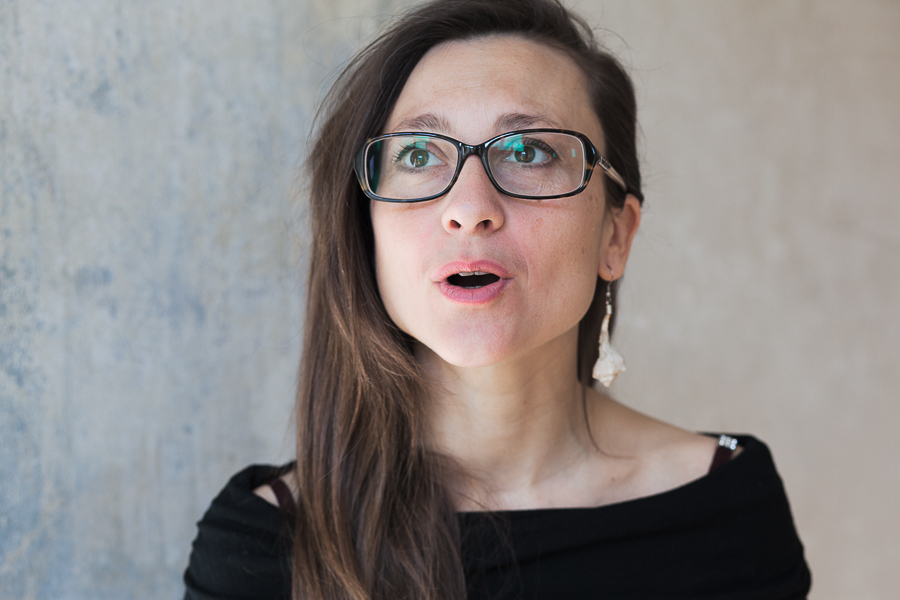 (c) Frauke Spangenberg
(c) Frauke Spangenberg
Do you feel a capitalistic pressure in your musical life? What would it be like without it?
I get my income mainly from my teaching. That’s why I don’t feel the pressure so strongly. On the other hand, when I hear colleagues from other European countries speak, I often think that in Germany we have helpful support and more financial possibilities as musicians/artists – this is what struck me most during the Corona crisis.
What have you been busy with lately and what are your projects for the near future?
I have been busy lately with the sonification and arrangement of Sorbian poems and songs – working on vocal sounds, loops and compositions for a documentary film that is in the process of being made. This programme is currently being recorded as a duo with violinist Izabela Kaldunska.
What are your plans or wishes for the residency?
Meeting other musicians/artists brings new ideas, new sounds, a changed ear. I am looking forward to an inspiring exchange and a beautiful concert together!
What is your best concert memory and why?
I have some beautiful concert moments in my memory and it’s hard for me to pick one…. it feels special for me as a musician or listener when a musical experience strongly carries me away into another (consciousness) space, into concentration or devotion, silence, or feeling impulsive liveliness…
If your city were a sound, what would it be?
A somewhat low-frequency breeze that constantly brushes against the auricle.
Kannst du dich kurz vorstellen?
Ich bin Sängerin, Komponistin und Gesangslehrerin/-coach. Die Stimme als unergründliches Phänomen und vokale Improvisation in verschiedenen Kontexten und künstlerischen Konstellationen beschäftigen mich seit Jahren. Das Unbekannte, nicht direkt greifbare in einer Performance welches überrascht, fasziniert mich – und ebenso, dass Improvisation den Raum und das Erleben der Anwesenden, ob hörend oder spielend, transformiert. Es ist ein eigener Raum der entsteht auch in meiner Arbeit mit Stimme/ Vokalimprovisation in Chören und Workshops.
Wo ist dein musikalischer Lebensmittelpunkt und warum?
Mein musikalisches Wirken erlebe ich einerseits als Sängerin andererseits unterrichte ich viel und widme mich sehr gern den Stimmen anderer Menschen… Improvisation und Klangforschung nehmen dabei ein wichtige Rolle ein. Den Kontakt zum eigenen Sein, Erleben, dem Körper, der eigenen Stimme aufzunehmen über das Zuhören und Erspüren was sich da grad im Augenblich ausdrücken möchte – das ist das was mich inspiriert. In diesem Kontakt entstehen neue sounds, Ausdrucksmöglichkeiten, Kompositionsideen, Konzepte…
Was sind deine Musikalische Einflüsse und Inspirationen?
In der Natur zu sein, die Zusammenarbeit mit anderen Musikern / Künstlern, mein Interesse an Tanz und Körperarbeit, philosophische und spirituelle Texte oder Lyrik die unser Sein und Erleben tiefer berfragen und betrachten… vor allem das Wesen hinter den offensichtlichen Dingen.
Was sind deine Fokusse in deiner Musik
Ich möchte auf irgendeine Weise berühren oder im Zuhörer/ aktiven Teilnehmer etwas in Bewegung bringen, und wenn es „nur“ ein veränderter Höreindruck ist oder etwas was auf irgeneiner Ebene „hängen bleibt“ und sich dort weiterbewegt. Den Selbstkontakt herzustellen zu eigenen Gefühlen, der Seele oder wie auch immer man das bezeichnen möchte…
 (c) Frauke Spangenberg
(c) Frauke Spangenberg
Spürst du einen kapitalistischen Druck in deinem musikalischen Leben? Wie wäre es ohne ihn?
Mein Einkommen erhalte ich vor allem aus meiner Unterrichtstätigkeit. Deshalb fühle ich den Druck nicht so stark. Andererseits denke ich oft, wenn ich Kollegen aus anderen europäischen Ländern sprechen höre, dass wir in Deutschland als Musiker/ Künstler eine hilfreiche Unterstützung und mehr finanzielle Möglichkeiten haben – das ist mir während der Coronakrise am meisten aufgefallen.
Womit warst du in letzter Zeit beschäftigt und was sind deine Projekte für die nähere Zukunft?
Ich habe mich in letzter Zeit mit der Verklanglichung und dem Arrangement sorbischerG edichte und Lieder beschäftigt – an Stimmsounds, Loops und Kompositionen gearbeitet für einen Dokumentarfilm, welcher gerade im Entstehungsprozess ist. Dieses Programm wird gerade aufgenommen im Duo mit der Violinistin Izabela Kaldunska.
Was sind deine Pläne oder Wünsche für die Residenz?
Ein Aufeinandertreffen mit anderen Musikern/Künstlern bringt neue Ideen , neue Klänge, ein verändertes Ohr mit sich. Ich freue mich auf einen inspirierenden Austausch und ein schönes Konzert zusammen!
Was ist deine schönste Konzerterinnerung und warum?
Ich habe einige schöne Konzertmomente in Erinnerung und es fällt mir schwer eine herauszugreifen… es fühlt sich besonders an für mich als Musikerin oder Zuhörerin wenn mich ein musikalisches Erleben stark mitreisst in einen anderen (Bewusstseins-) Raum, in die Konzentration oder die Hingabe, Stille, oder das Fühlen impulsiver Lebendigkeit…
Wenn deine Stadt ein Geräusch wäre, welches wäre es?
Ein etwas tieffrequenter Windhauch der beständig an der Ohrmuschel entlangstreift.
Kannst du dich kurz vorstellen?
Mein Name ist Wei, auf Chinesisch “葳”, was “üppig” oder “die Kraft des Blühens” bedeutet. Ich komme aus Taiwan und bin ein professioneller Blockflötist.
Wo ist Ihr musikalischer Lebensmittelpunkt und warum?
Ich lebe in Köln, wo ich studiert habe!
Wie ist das Projekt entstanden?
Die unvollkommene Perfektion – Als Musiker streben wir immer nach Perfektion, aber alles ist gerade durch seine Unvollkommenheit schön. Das ist die Idee hinter meinem Programm.
Was sind deine musikalischen Einflüsse und Inspirationen, was sind deine Schwerpunkte in der Musik?
Yin und Yang – das Gleichgewicht der gegensätzlichen oder entgegengesetzten Kräfte. Wenn ich zeitgenössische Musik auf der Blockflöte spiele, die ein Instrument der Alten Musik ist, oder meinen asiatischen Hintergrund mit westlicher Musik/Kultur verbinde, dann sind das die gegensätzlichen Fakten, die mich inspirieren.
Außerdem braucht das Yang das Yin, um ein Gleichgewicht herzustellen, so wie es kein Glück gibt, wenn es keine Traurigkeit gibt, und auch das inspiriert mich sehr in meinem Spiel.
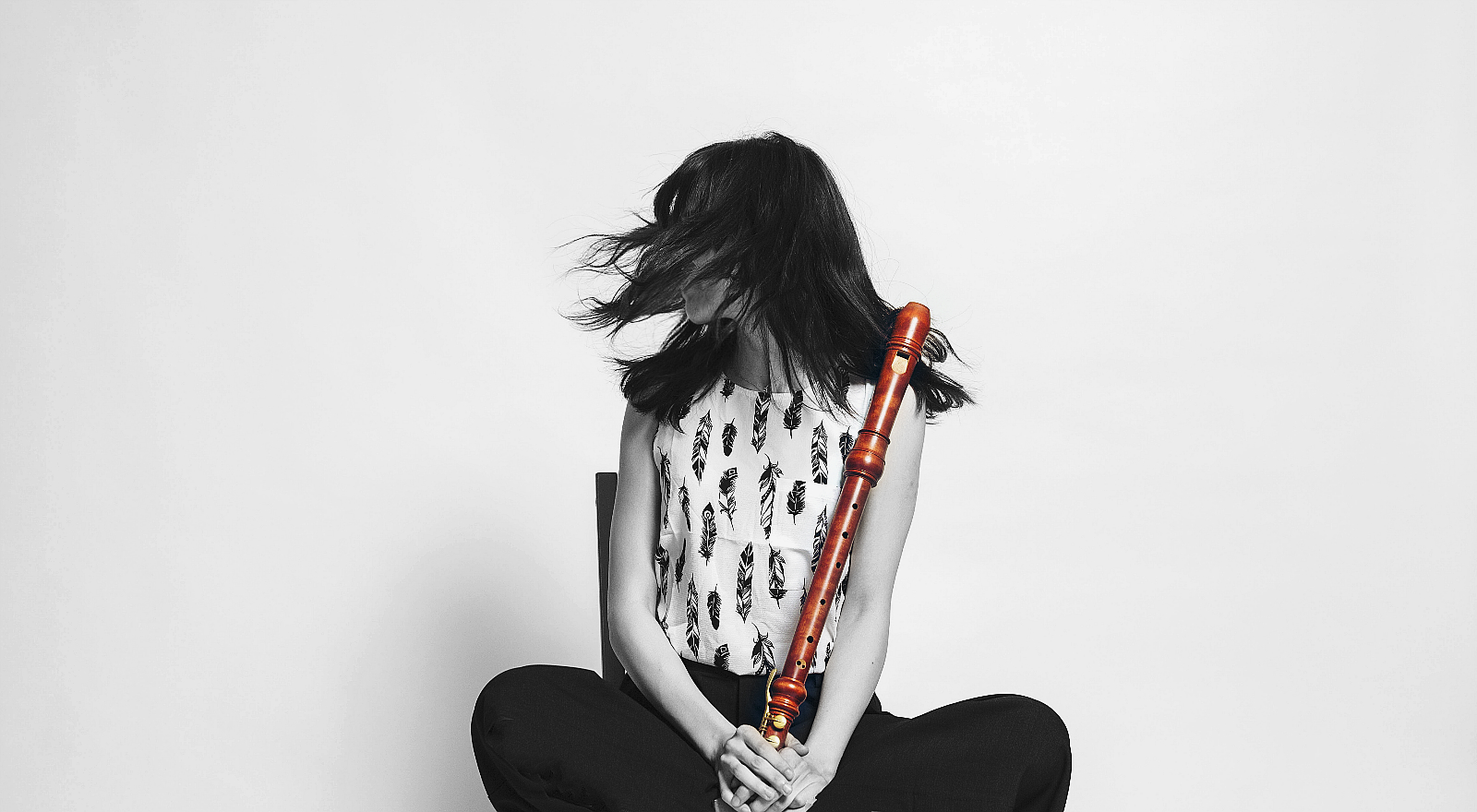
Spürst du in deinem musikalischen Leben irgendeinen kapitalistischen Druck? Wie sähe es ohne ihn aus?
Ich habe ein seperates Leben als Musiker. Das eine ist das realistische Leben hinter dem Bildschirm mit kapitalistischen Zwängen, das andere ist, wenn ich auf der Bühne Musik bin, naiv und rein.
Womit haben Sie sich in letzter Zeit beschäftigt und was sind deine Projekte für die nahe Zukunft? Was kann man von deinem Konzert in Leipzig erwarten?
Ich bereite gerade ein neues Projekt mit meinem Ensemble Bux vor, wir arbeiten mit zwei Komponist:innen zusammen: Helena Canovas Parés und Eli Simic-Prosic. Ihre Stücke werden im Oktober in Köln und Berlin uraufgeführt.
Ich werde verschiedene Stücke von Komponist:innen mit sehr unterschiedlichem Hintergrund spielen. In diesem Konzert werden Sie Musik hören, die Menschen verbindet, die Menschen mit der Welt, in der wir leben, verbindet und auch Sie und sich selbst verbindet.
Was ist deine schönste Konzerterinnerung und warum?
Ein Konzert in meiner Heimatstadt, das in einer Kirche stattfand, die sich um behinderte Kinder kümmert. Bei diesem Konzert habe ich die Kraft der Musik und das pure Glück erlebt.
Wenn deine Stadt ein Geräusch wäre, welches wäre es?
Das Zirpen der Zikaden.
Can you briefly introduce yourself?
My name is Wei, in Chinese “葳”, which means lush, or the power of blossoming. I am from Taiwan, and I am a professional recorder player.
Where is your musical homebase and why?
I live in Cologne where I have studied!
How did the project start?
The imperfect perfection— As musicians, we are always striving for perfection, but everything is beautiful because of its imperfection. This is the idea behind my program.
What are your musical influences and inspirations?
What are your focuses in your music?
Yin and yang- the balance of opposite or contrary forces. Playing contemporary music on the recorder which is an early music instrument, or my Asian background with western music/culture, those are the contrary facts that inspire me.
Also, Yang needs Yin to make a balance, just like happiness does not exist when there is no sadness, this is also what inspires me a lot in my playing.

Do you feel any capitalist pressures in your musical life? What would it be like without it?
I have a separated life as a musician. One is the behind-screen realistic life with capitalist pressures, the other one is when I am playing music on stage, naive and pure.
What have you been busy with lately and what are your projects for the near future? What can one expect from your concert in Leipzig?
Recently I am preparing a new project with my ensemble called Bux, we are working with two composers: Helena Canovas Parés and Eli Simic-Prosic. Their pieces will be premiered in October in Cologne and Berlin.
I will play different pieces from composers from very different backgrounds. In this concert you will hear music that connects people, connects people with the world we are living in, and also connects you and yourself.
What is your best concert memory and why?
A concert in my hometown, it is taken place in at a church where they take care of disabled kids. In this concert I see the power of music and pure happiness.
If your city was a sound, what would it be?
The chirping of cicadas.
Kannst du dich kurz vorstellen?
Ich bin ein Komponist und Pianist aus Schottland. Meine kreative Ausrichtung ist in erster Linie ein experimenteller Ansatz für zeitgenössische klassische Musik.
Wo ist dein musikalischer Lebensmittelpunkt und warum?
Ich bin in Leipzig ansässig, weil ich 2019 für eine Residency hierher gezogen bin und es mir so gut gefallen hat, dass ich bleiben wollte. Leipzig hat eine künstlerische Atmosphäre und viel Potenzial, und Deutschland selbst hat viele Vorteile für Künstler:innen aller Art.
Wie hat das Projekt angefangen?
Ich werde Klavierkompositionen aufführen, die ich in den letzten Jahren geschrieben habe. Ich fühle mich sehr wohl dabei, Musik für dieses Instrument zu schreiben, weil es eine Verbindung zu meiner eigenen Körperlichkeit und meinen phantasievollen Erfahrungen mit diesem Instrument durch jahrelanges Spielen herstellt.
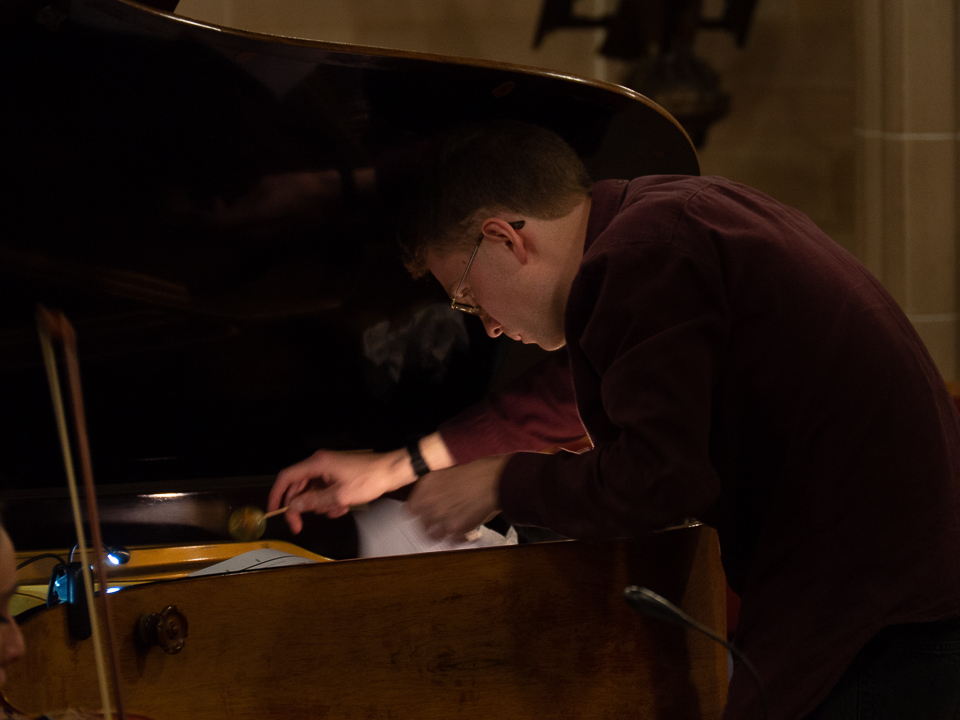
Was sind deine musikalischen Einflüsse und Inspirationen?
Es gibt so viele verschiedene Einflüsse auf meine Arbeit, aber eine wichtige Orientierungshilfe für mich war die Arbeit von Komponisten aus dem Umkreis von John Cage und den nachfolgenden Generationen. Das eröffnete mir neue Möglichkeiten und veränderte meine Prioritäten. Die Lektüre von Alvin Luciers Vorlesungen an der Wesleyan University (Music 109: Notes on Experimental Music”) war dabei ein entscheidender Schritt; das Buch hat mich sehr inspiriert.
Welche Schwerpunkte setzt du in deiner Musik?
Meine Arbeit konzentriert sich auf ein Gefühl der Präsenz, Offenheit und Kontingenz. Ich möchte Räume für imaginative Möglichkeiten schaffen, eine Ästhetik des Denkens und der Sinnlichkeit.
Spürst du kapitalistische Zwänge in deinem musikalischen Leben? Wie würde es ohne sie aussehen?
Ich spüre fast täglich kapitalistische Zwänge in meinem musikalischen Leben, egal wie sehr ich versuche, sie zu vermeiden. Das kann alles sein, von der Gleichsetzung von Produktivität und menschlichem Wert über die Behandlung des eigenen Ich’s als Geschäft bis hin zu dem Gefühl, mit allen konkurrieren zu müssen, die über ähnliche Fähigkeiten verfügen. Wettbewerb hat nichts mit Kunst zu tun und führt eher zu einer Homogenisierung als zu einer Diversifizierung. Darüber hinaus werden die menschlichen Beziehungen oft unter den verzweifelten Konkurrenzkampf um Chancen und eine würdige Bezahlung subsumiert. Es ist schwer vorstellbar, dass es anders sein könnte, aber wir alle würden es wahrscheinlich leichter finden, uns auf unsere eigenen Interessen und künstlerischen Wege zu konzentrieren. Es würden sich unendlich viele andere künstlerische Möglichkeiten auftun.
Womit hast du dich in letzter Zeit beschäftigt und was sind deine Projekte für die nahe Zukunft?
Ich war mit vielen Projekten beschäftigt. Vor kurzem habe ich meine Komposition ‘Diffuse Planes’ für den Gitarristen Martin Steuber fertiggestellt. Ich habe ältere Kompositionen überarbeitet und etwas Neues für meine neueste Gruppe, das Routine Investigation Ensemble, geschrieben. Mit Jolon Dixon habe ich in der Pilotenkueche in Leipzig Workshops zu experimenteller Musik und Bewegung geleitet. Ich bereite mich auf eine Aufnahmesession für zeitgenössisches Liedgut mit der Sopranistin Filipa Portela vor. Und improvisiere mit dem Altered Forms Trio. Und ich organisiere Konzerte im Rahmen meiner eigenen Glasgow Experimental Music Series und der Gesprächskonzertreihe “Neues bei Grieg” in Leipzig.
Was kann man von deinem Konzert in Leipzig erwarten?
Die Zuhörer können eine ruhige Musik erwarten, die sich Zeit nimmt, die sich allmählich entfaltet und die an seltsame Orte führt.
Was ist deine schönste Konzerterinnerung und warum?
Es ist unmöglich, meine beste Konzerterinnerung zu wählen, aber ich habe das Sun Ra Arkestra unter der Leitung von Marshall Allen in den letzten Jahren ein paar Mal gesehen, einmal in Edinburgh und einmal in Leipzig. Der Auftritt in Leipzig war besonders bewegend; ich hatte fast die ganze Zeit über Tränen in den Augen, während ich gleichzeitig vor Freude lachte. Zwei Konzerte von Eliane Radigues Musik für akustische Instrumente beim Tectonics Festival in Glasgow waren ebenfalls bemerkenswert und haben mich nach dem Konzert mit einer Energie aufgeladen, die ich praktisch nie gespürt habe.
Wenn deine Stadt ein Klang wäre, welcher wäre es?
Im Moment ist meine Stadt Leipzig. Wenn sie ein Geräusch wäre, dann wären es Stimmen in der Nähe, die sich leise unterhalten, Bäume, die sich sanft im Wind bewegen, und ab und zu eine vorbeirasende Straßenbahn.
Can you briefly introduce yourself?
I am a composer and pianist from Scotland. My creative orientation is primarily experimental approaches to contemporary classical music.
Where is your musical homebase and why?
I am based in Leipzig, Germany, because I moved here in 2019 for a residency and liked it enough to want to to stay. Leipzig has an artistic atmosphere and lots of potential, and Germany itself has many benefits for artists of all kinds.
How did the project start?
I will be performing piano compositions that I have written over the past few years. I feel very comfortable writing music for this instrument because it connects with my own physicality and my imaginative experiences with it through years of playing.

What are your musical influences and inspirations?
There are so many different influences on my work, but one important shift of orientation for me was towards the work of composers in the orbit of John Cage, and the generations that followed. That involved a major opening of possibilities for me and a change in priorities. Reading the book of Alvin Lucier’s lectures at Wesleyan (‘Music 109: Notes on Experimental Music’) was a crucial step in this; that book gave me so much inspiration.
What are your focuses in your music?
My work focuses on a sense of presence, openness and contingency. I want to create spaces of imaginative possibility, an aesthetics of thought and sensuality.
Do you feel any capitalist pressures in your musical life? What would it be like without it?
I feel capitalist pressures in my musical life on almost a daily basis, no matter how hard I try to avoid them. These can be anything from the equation of productivity to human value, to treating the self as a business and the sense of being thrown into competition with everyone who has a similar skill set. Competition has nothing whatsoever to do with art, and tends to cause a homogenisation rather than a diversification. Furthermore, human relations are often subsumed under the desperate competitive struggle for opportunities and dignifying paid work. It’s difficult to imagine how things would be otherwise, but we would all likely find it easier to focus on our own interests and artistic journeys. Infinite other kinds of artistic possibilities would open up.
What have you been busy with lately and what are your projects for the near future?
I have been busy with many projects. I recently completed my composition ‘Diffuse Planes’ for guitarist Martin Steuber. I have been revising older compositions and writing something fresh for my latest group, Routine Investigation Ensemble. I was involved in facilitating workshops on experimental music and movement with Jolon Dixon at Pilotenkueche, Leipzig. I am preparing for a recording session of contemporary song with soprano Filipa Portela. And improvising with Altered Forms Trio. And organising concerts under the auspices of my own Glasgow Experimental Music Series and the ‘Neues bei Grieg’ discussion-concert series in Leipzig.
What can one expect from your concert in Leipzig?
Listeners can expect quiet music that takes its time, unfolding gradually, and that goes to strange places.
What is your best concert memory and why?
It’s impossible to choose my best concert memory, but I saw the Sun Ra Arkestra under the leadership of Marshall Allen a couple of times in the past years, once in Edinburgh and once in Leipzig. The Leipzig performance was especially moving; I had tears in my eyes for most of it, while simultaneously laughing with joy. Two concerts of Eliane Radigue’s music for acoustic instruments at Tectonics Festival, Glasgow, were also remarkable and charged me with a post-concert energy I’ve practically never felt.
If your city was a sound, what would it be?
Right now my city is Leipzig. If it were a sound, it would be nearby voices in quiet conversation, trees moving gently in the wind and an occasional tram rattling by.
Can you briefly introduce yourself?
The Berlin trio, founded in 2019, is comprised of recorder player Miako Klein, pianist Magda Mayas and violinist Biliana Voutchkova. The three musicians are internationally renowned for their live shows and numerous recorded works in the fields of improvisation, contemporary music, and performance. Originating from independent musical backgrounds, genres, and styles, the trio concentrates on developing real time compositions exploring the dynamic and tonal possibilities of their respective instruments, extending them unconventionally. The primary focus of the trio resides in the variety of timbres that arise from the combination of instruments as they overlap or coexist side by side, on patiently creating fragile textures which hover on the edge of audibility only to spontaneously shift direction creating a dynamic space for dense clusters of noise or the sonic suspension of minimal tonal soundscapes.
Where is your musical homebase and why?
Berlin, because it is one of the most exciting contemporary art centers of the world, and because it nourishes a healthy, vibrant and inspiring experimental music scene with a very supportive community
How did the project start? How did the current line-up of the ensemble come about?
we’ve worked with each other as part of different projects and groups for some years. in early 2019 we were invited by jan peter sonntag for a recording session at the deutschlandradio, as part of his project CERTAIN BEAUTY. we loved playing together and decided to continue as a group.
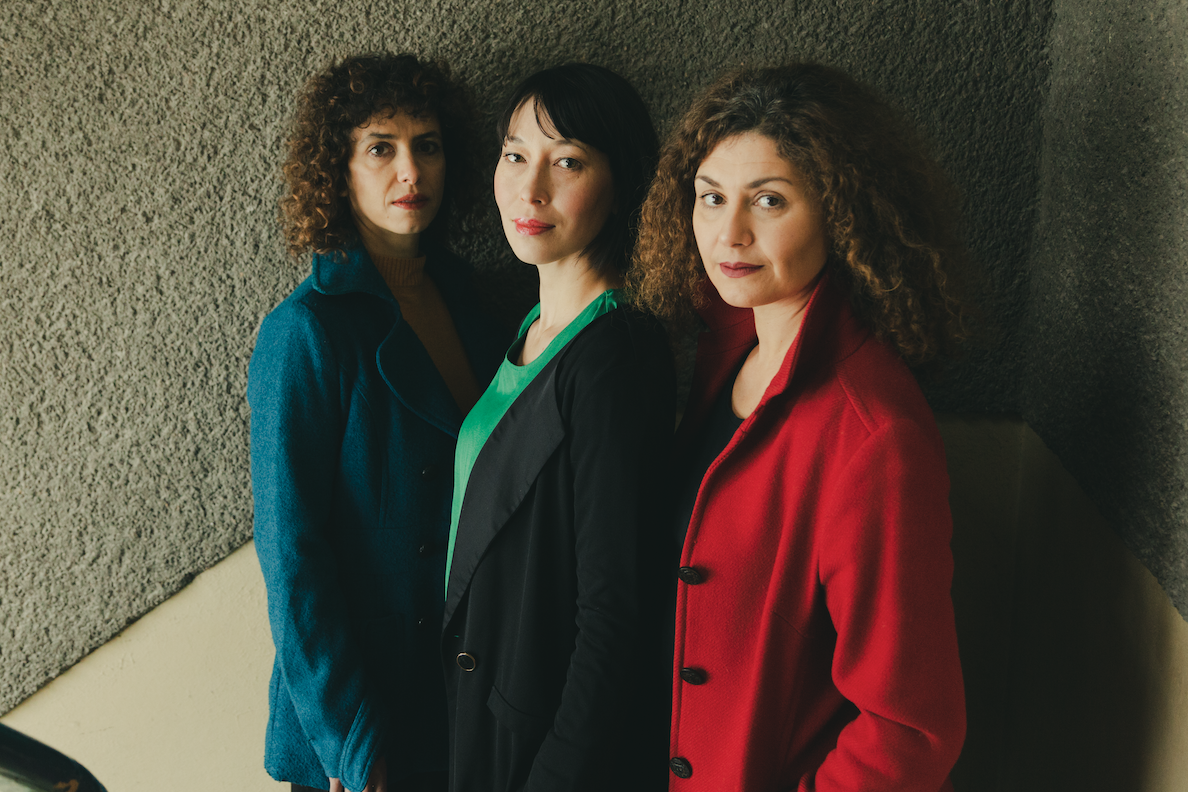
What are your musical influences and inspirations? What are your focuses in your music
It’s hard to pinpoint that in language. Generally we focus on the moment, the sounds we hear now and work with them. Each of us has their personal musical language, takes their own inspiration and this is what comes together when we play as a group.
Do you feel any capitalist pressures in your musical life? What would it be like without it?
Difficult to say in a few sentences . Of course playing music that’s not commercial and often on the edge, it is a life style we choose, not compromising our artistic integrity, but in return often being dependant on public funding for venues and personal projects. Mostly we don’t feel pressured, except at few times, and especially during the Pandemic interesting discussion arose.
What have you been busy with lately and what are your projects for the near future?
Due to the Covid 19 pandemic, all our concerts in 2020 were canceled. Since then, it’s been difficult to resume regular concert schedule as a relatively new trio. Concerts kept being postponed or canceled, so we focused on producing our first album SPOKEN/UNSPOKEN on the British label Confront Recordings. We also produced two videos, in collaboration with Berta Berlin, Heroines of Sound editions and CHB Berlin. Most recently we presented a concert at Ring Ring Festival and started working on a new long durational piece, with support from the Musikfonds FEB grant. We want to expand compositionally short selected improvised parts of some recent recordings dealing with timbres and harmonic concepts, to create an open space with slowly unfolding harmonies. This results in a sense of stasis in which the sonic material develops and transforms over an extended period of time. We would like to conceive of various pieces that move between installation and acoustic concert, exploring the phenomena and listening spaces that emerge as a result.
What can one expect from your concert in Leipzig?
Better come with no expectations and be open to leaving behind any thoughts, in order to fully immerse into deep listening of a slow and rich soundscape.
If your city was a sound, what would it be?
Berlin will sound the way you listen to it.
Könnt ihr euch kurz vorstellen?
Das 2019 gegründete Berliner Trio besteht aus der Blockflötistin Miako Klein, der Pianistin Magda Mayas und der Geigerin Biliana Voutchkova. Die drei Musikerinnen sind international bekannt für ihre Live-Shows und zahlreiche Aufnahmen in den Bereichen Improvisation, zeitgenössische Musik und Performance. Das Trio, das aus unterschiedlichen musikalischen Hintergründen, Genres und Stilen stammt, konzentriert sich auf die Entwicklung von Echtzeitkompositionen, die die dynamischen und klanglichen Möglichkeiten ihrer jeweiligen Instrumente erforschen und unkonventionell erweitern. Das Hauptaugenmerk des Trios liegt auf der Vielfalt der Klangfarben, die sich aus der Kombination der Instrumente ergeben, wenn sie sich überlagern oder nebeneinander existieren, auf der geduldigen Schaffung fragiler Texturen, die am Rande der Hörbarkeit schweben, um dann spontan die Richtung zu wechseln und einem dynamischen Raum für dichte Geräuschcluster oder die klangliche Auflösung minimaler tonaler Klanglandschaften zu schaffen.
Wo ist eure musikalischer Lebensmittelpunkt und warum?
Berlin, weil es eines der aufregendsten zeitgenössischen Kunstzentren der Welt ist und weil es eine gesunde, lebendige und inspirierende experimentelle Musikszene mit einer sehr unterstützenden Gemeinschaft gibt.
Wie hat das Projekt angefangen? Wie ist die aktuelle Besetzung des Ensembles zustande gekommen?
Wir arbeiten schon seit einigen Jahren in verschiedenen Projekten und Gruppen zusammen. Anfang 2019 wurden wir von Jan Peter Sonntag zu einer Aufnahmesession im Deutschlandradio eingeladen, als Teil seines Projekts CERTAIN BEAUTY. Wir liebten es, zusammen zu spielen und beschlossen, als Gruppe weiterzumachen.

Was sind eure musikalischen Einflüsse und Inspirationen? Was sind eure Schwerpunkte in eurer Musik?
Es ist schwer, das in Worte zu fassen. Im Allgemeinen konzentrieren wir uns auf den Moment, auf die Klänge, die wir jetzt hören, und arbeiten mit ihnen. Jeder von uns hat seine eigene musikalische Sprache, nimmt seine eigene Inspiration und das kommt zusammen, wenn wir als Gruppe spielen.
Spürt ihr in eurem musikalischen Leben irgendwelche kapitalistischen Zwänge? Wie würde es ohne ihn aussehen?
Es ist schwierig, das in ein paar Sätzen zu auszuführen. Natürlich ist es ein Lebensstil, Musik zu spielen, die nicht kommerziell ist und oft am Rande der Norm liegt, und wir haben uns dafür entschieden, unsere künstlerische Integrität nicht zu kompromittieren, aber im Gegenzug sind wir oft auf öffentliche Gelder für Auftritte und persönliche Projekte angewiesen. Meistens fühlen wir uns nicht unter Druck gesetzt, außer in einigen wenigen Momenten, und besonders während der Pandemie kamen interessante Diskussionen auf.
Womit habt ihr euch in letzter Zeit beschäftigt und was sind eure Projekte für die nahe Zukunft?
Aufgrund der Pandemie Covid 19 wurden alle unsere Konzerte im Jahr 2020 abgesagt. Seitdem war es schwierig, als relativ neues Trio wieder einen regelmäßigen Konzertplan aufzustellen. Konzerte wurden immer wieder verschoben oder abgesagt, also haben wir uns auf die Produktion unseres ersten Albums SPOKEN/UNSPOKEN auf dem britischen Label Confront Recordings konzentriert. Außerdem haben wir zwei Videos produziert, in Zusammenarbeit mit Berta Berlin, Heroines of Sound Editions und CHB Berlin. Kürzlich präsentierten wir ein Konzert beim Ring Ring Festival und begannen mit Unterstützung des Musikfonds FEB mit der Arbeit an einem neuen, längeren Stück. Wir wollen kompositorisch kurze ausgewählte improvisierte Teile einiger neuerer Aufnahmen erweitern, die sich mit Klangfarben und harmonischen Konzepten beschäftigen, um einen offenen Raum mit sich langsam entfaltenden Harmonien zu schaffen. So entsteht ein Gefühl des Stillstands, in dem sich das klangliche Material über einen längeren Zeitraum hinweg entwickelt und verwandelt. Wir möchten verschiedene Stücke konzipieren, die sich zwischen Installation und akustischem Konzert bewegen und die Phänomene und Hörräume erforschen, die dabei entstehen.
Was kann man von eurem Konzert in Leipzig erwarten?
Man sollte ohne Erwartungen kommen und bereit sein, alle Gedanken hinter sich zu lassen, um ganz in das tiefe Hören eines langsamen und reichen Klangraums einzutauchen.
Wenn eure Stadt ein Geräusch wäre, welches wäre es?
Berlin wird so klingen, wie du die Stadt hörst.
Can you briefly introduce yourself?
I’m Robert, I work in the field of electroacoustics and sound art, and I guess I’m at home in music in general.
Where is your musical center of life and why?
My musical center of life has always shifted. On the one hand I have a training in classical music, but on the other hand I have always tried to explore its boundaries. This is also how I came to electroacoustic music, which I immersed myself in during my second degree. So in my professional life, in addition to freelance artistic work, I have taught, like many others, both piano and music theory at music schools and sound art at the Bauhaus University in Weimar.
How did the project start?
A connecting opportunity to work with acousmatic means after my studies was the collaboration with the free theatre company “erweiterte Zugeständnisse”. For most of the productions I was allowed to create the stage music and sound design. I always enjoyed this work between artistically more demanding, multi-channel recordings or stage installations on the one hand and the more down-to-earth tasks, such as simulating an aged voice of the protagonist. In addition, there are no genre boundaries in theatre, so you can just write an impressionistic piano piece sometimes, there’s just a lot of freedom. On the other hand, I have also created audio books. The material for the pieces that can be heard on the 27th has grown in this environment.
What are your musical influences and inspirations?
My first influences on my musical creative will probably come more from outside music, for example, for some time I wanted to compose pieces that would be similarly complex and reduced in equal measure to the paintings of American modernism. In recent years, however, I increasingly feel inspiration for actively listening to what already surrounds us than for always adding more to this sounding world. But perhaps this is also an indicator of a lack of balance. After all, both are in a causal relationship.
What are your focuses in your music?
The question is not so easy to answer. It often depends on the material I’m dealing with. Basically, however, I would say that I am interested in sensitizing recipients to a deeper experience of their everyday acoustic life. Be it through the free play with concrète sounds or a very reduced handling of a single sounding source material.
Do you feel a capitalistic pressure in your musical life? How would it be without it?
Absolutely. On the one hand, I have to realize that I am in the not self-evidently fortunate position of making a living around my interests. On the other hand, I am accompanied by the phenomenon that most of the time I am not paid for what I have learned, namely to play the piano or to be tonally creative, but for teaching it. Because to live exclusively from artistic work – I personally know (almost) no one. Earl Brown once said in an interview that you can only call yourself an artist if you don’t work after orders but are always driven by your own impulse. To be honest, according to this completely plausible description, I can hardly call myself an artist. If from tomorrow on I would only be paid (sufficiently) for my artistic work – that would be a dream on the one hand, which would allow me to really develop instead of delivering. On the other hand, it would certainly take quite a while to learn how to deal with the new benchmarks in the first place.
What have you been busy with lately and what are your projects for the near future?
Most recently I did the film music for the documentary “Und ruhig fließt der Rhein” by Oliver Matthes and Volker Klotzsch. Working on this very quiet and carefully narrated film suited me very well. A few months ago I also began a project of the heart with a somewhat more elaborate composition in several parts, with which I would actually like to resume an aesthetic that I have unfortunately neglected in my eyes or ears for too long. But it will certainly take another year or two until it is finished, especially with all my professional and family obligations. In the very near future I will also contribute an installation work for the LeipziXP festival, a small breathing room in the Plast.
What can one expect from your concert in Leipzig?
I have chosen works that do not have the pretension of elaborate compositions. The source material for these collages are usually soundscapes that were previously used in plays or audio books. I just felt like playing with these sounds, detached from the original context. It’s also a way for me to say goodbye once again to projects that were over sooner than I would have liked. In some passages, one also simply encounters atmospheres that are designed less in gestural progression than in variations of their structure or texture, which perhaps only invite one to listen around. If a motto had been requested, I might have chosen geophony and biophony, though in parts sometimes in a rather striking manner. The source material was often meant to associate the animalistic, or even consisted of recordings of animals or other sounds of nature. However, there is no deeper ecological message associated with it – at least in these works.
What is your fondest concert memory and why?
Oh, a painful limitation. I will therefore better ignore it. After all, with almost every concert there is a gain. I spontaneously felt most reminded of three concerts: once a concert in my teenage years with Shostakovich’s 11th Symphony, which at the time shook me for its intense atmospheres. Then a concert with Françis Dhomont, who interpreted his piece “Letter to the Father” on an Acousmonium, and only then did it become clear to me what level a stereo composition is still capable of reaching with this spatialization. And finally, a concert in the Kulturnhalle a few years ago with the Insubordination Orchestra, in which over a long period of time only two instruments played one note at a time, followed after a short break by the next pair from a variety of different analog and electronic instruments. This showed me that, in principle, reduced listening (in the sense of Pierre Schaeffer and Michel Chion) is also possible in compositions with completely normal instruments. For me this concert could have gone on for hours – always a new timbre…
If your city were a sound, which one would it be?
To limit myself to one sound or association would mean to deny it a diversity, so to speak. And that’s exactly what I like very much. That I can lie in the floodplain forest and enjoy a decent Dawn Chorus while only a few hundred meters away the street cars rumbles over the switches of a street crossing.
Kannst du dich kurz vorstellen?
Ich bin Robert, arbeite im Bereich Elektroakustik und Klangkunst und bin ganz allgemein wohl in der Musik zuhause.
Wo ist dein musikalischer Lebensmittelpunkt und warum?
Mein musikallischer Lebensmittelpunkt hat sich immer wieder verschoben. Einerseits habe ich eine Ausbildung in klassischer Musik, andererseits habe ich auch immer versucht, mich mit deren Grenzen zu beschäftigen. So kam ich auch zur Elektroakustischen Musik, in die ich in meinem zweiten Studium eintauchen durfte. So habe ich in meinem Berufsleben neben freischaffenden, künstlerischen Arbeiten wie viele andere unterrichtet – sowohl Klavier und Musiktheorie an Musikschulen als auch Klangkunst an der Bauhaus-Uni in Weimar.
Wie hat das Projekt angefangen?
Eine Anknüpfungsmöglichkeit, nach meinem Studium mit akusmatischen Mitteln zu arbeiten, war die Zusammenarbeit mit der Freien Theatercompagnie „erweiterte zugeständnisse“. Für die meisten der Produktionen durfte ich die Bühnenmusik und das Sounddesign gestalten. Diese Arbeit zwischen künstlerisch anspruchsvolleren, mehrkanaligen Einspielern oder Bühneninstallationen einerseits und den bodenständigeren Aufgaben, wie der Simulation einer gealterten Stimme der Protagonistin hat mir immer Freude gemacht. Zudem gibt es im Theater keine Genregrenzen, man kann also auch einfach mal ein impressionistisches Klavierstück schreiben, da gibt es einfach viel Freiheit. Zum anderen habe ich auch Hörbücher klanglich ausgestaltet. In diesem Umfeld ist das Material für die Stücke gewachsen, die am 27.5. zu hören sind.
Was sind deine Musikalische Einflüsse und Inspirationen?
Meine ersten Einflüsse auf meinen musikalischen Gestaltungswillen stammen wahrscheinlich eher von außerhalb der Musik, beispielsweise wollte ich einige Zeit gern Stücke komponieren, die ähnlich komplex und reduziert gleichermaßen wären wie die Bilder der amerikanischen Moderne. In den letzten Jahren empfinde ich Inspiration aber zunehmend für das aktive Hinhören auf das, was uns ohnehin bereits umgibt als dafür, dieser klingenden Welt immer noch mehr hinzuzufügen. Vielleicht ist das aber auch ein Indikator für einen fehlenden Ausgleich. Denn beides steht ja in einem kausalen Verhältnis.
Was sind deine Fokusse in deiner Musik
Die Frage lässt sich gar nicht so leicht beantworten. Das hängt oft an dem Material, mit dem ich mich beschäftige. Grundsätzlich würde ich aber sagen, dass mir etwas daran liegt, Rezipient*innen für ein tieferes Erleben ihres akustischen Alltags zu sensibilisieren. Sei es durch das freie Spiel mit concrèten Klängen oder einen sehr reduzierten Umgang mit einem einzigen klingenden Ausgangsmaterial.
Spürst du einen kapitalistischen Druck in deinem musikalischen Leben? Wie wäre es ohne ihn?
Absolut. Einerseits muss ich feststellen, dass ich in der nicht selbstverändlichen, glücklichen Lage bin, meinen Lebensunterhalt im Umfeld meiner Interessen zu bestreiten. Andererseits begleitet mich das Phänomen, dass ich meistens nicht für das bezahlt werde, was ich gelernt habe, nämlich Klavier zu spielen oder klanglich kreativ zu werden sondern dafür, es zu unterrichten. Denn außschließlich von der künstlerischen Arbeit zu leben – da kenne ich persönlich (fast) niemanden. Earl Brown hat mal in einem Interview sinngemäß gesagt, dass man sich eigentlich nur als Künstler*in bezeichnen könne, wenn man nicht den Aufträgen hinterher arbeitet sondern immer aus dem eigenen Impuls angetrieben wird. Ehrlich gesagt, nach dieser völlig plausiblen Beschreibung kann ich mich dann tatsächlich auch kaum als Künstler bezeichnen. Wenn ich ab morgen nur noch (ausreichend) für meine künstlerische Arbeit bezahlt würde – das wäre einerseits ein Traum, der mir erlauben würde, mich auch wirklich zu entwicklen statt zu liefern. Andererseits würde es sicher auch eine ganze Weile dauern zu lernen, mit den neue Bezugsgrößen überhaupt umzugehen.
Womit warst du in letzter Zeit beschäftigt und was sind deine Projekte für die nähere Zukunft?
Zuletzt habe ich die Filmmusik für den Dokumentarfilm „Und ruhig fließt der Rhein“ von Oliver Matthes und Volker Klotzsch gemacht. Die Arbeit an diesem sehr ruhig und behutsam erzählten Film kam mir sehr entgegen. Begonnen habe ich vor einigen Monaten zudem ein Herzensprojekt mit einer etwas aufwändigeren Komposition in mehreren Teilen, mit der ich eigentlich wieder an eine Ästhetik anknüpfen wollen würde, die ich in meinen Augen bzw. Ohren leider zu lange vernachlässigt habe. Bis zur Fertigstellung wird das aber sicher noch ein, zwei Jahre dauern, zumal bei all den beruflichen und familiären Verpflichtungen. In der allernächsten Zukunft steuere ich außerdem eine installative Arbeit für das ZiXP-Festival bei, einen kleinen atmenden Raum im Plast.
Was kann man von deinem Konzert in Leipzig erwarten?
Ausgewählt habe ich Arbeiten, die nicht den Anspruch ausgearbeiteter Kompositionen haben. Das Ausgangsmaterial für diese Collagen bilden meist Klangkulissen, die zuvor in Theaterstücken oder Hörbüchern Verwendung fanden. Mit diesen Klängen losgelöst vom ursprünglichen Kontext zu spielen, da hatte ich gerade Lust drauf. Außerdem ist es für mich ein Weg, mich nocheinmal von Projekten zu verabschieden, die schneller vorbei waren, als es mir lieb war. In einigen Passagen trifft man auch einfach nur auf Atmosphären, die weniger im gestischen Verlauf gestaltet sind als vielmehr in Varianten ihrer Struktur oder Textur, die vielleicht nur zum Umhören einladen. Wenn ein Motto gefordert worden wäre, hätte ich vielleicht Geo- und Biophonie gewählt, wenn zu Teilen auch mitunter in einer recht plakativen Art und Weise. Das Ausgangsmaterial sollte oft Tierisches assoziieren oder bestand sogar aus Aufnahmen von Tieren oder anderen Naturklängen. Eine tiefergehende ökologische Botschaft ist aber – zumindest bei diesen Arbeiten – damit nicht verbunden.
Was ist deine schönste Konzerterinnerung und warum?
Oh, eine schmerzhafte Beschränkung. Ich werde sie daher besser ignorieren. Mit fast jedem Konzert geht ja ein Gewinn einher. Am ehesten fühlte ich mich spontan an drei Konzerte erinnert: einmal an ein Konzert im Teenager-Alter mit Schostakowitschs 11. Sinfonie, die mich damals ob ihrer intensiven Atmosphären erschüttert hatte. Dann ein Konzert mit Françis Dhomont, der sein Stück „Brief an den Vater“ auf einem Acousmonium interpretierte und mir erst da klar wurde, welche Ebene eine Stereokomposition mit dieser Spatialisierung noch zu erreichen im Stande ist. Und schließlich tatsächlich ein Konzert in der Kulturnhalle vor ein paar Jahren mit dem Insubordination Orchestra, in welchem über einen langen Zeitraum immer nur zwei Instrumente gemeinsam jeweils einen Ton spielten, nach einer kurzen Pause folgte dann immer das nächste Paar aus einer Vielzahl unterschiedlichster analoger und elektronischer Instrumente. Das zeigte mir, das im Prinzip auch bei Kompositionen mit ganz normalen Intrumenten reduziertes Hören (im Sinne Pierre Schaeffers bzw. Michel Chions) möglich ist. Für mich hätte dieses Konzert noch Stunden weitergehen können – immer wieder eine neue Klangfarbe…
Wenn deine Stadt ein Geräusch wäre, welches wäre es?
Mich auf ein Geräusch oder eine Assoziation zu beschränken würde bedeuten, ihr gewissermaßen eine Vielfältigkeit abzusprechen. Und genau die mag ich sehr. Dass ich im Auwald liegen kann und einen ganz anständigen DawnChorus genießen kann während nur ein paar hundert Meter weiter die Straßenbahn über die Weichen einer Straßenkreuzung rumpelt.
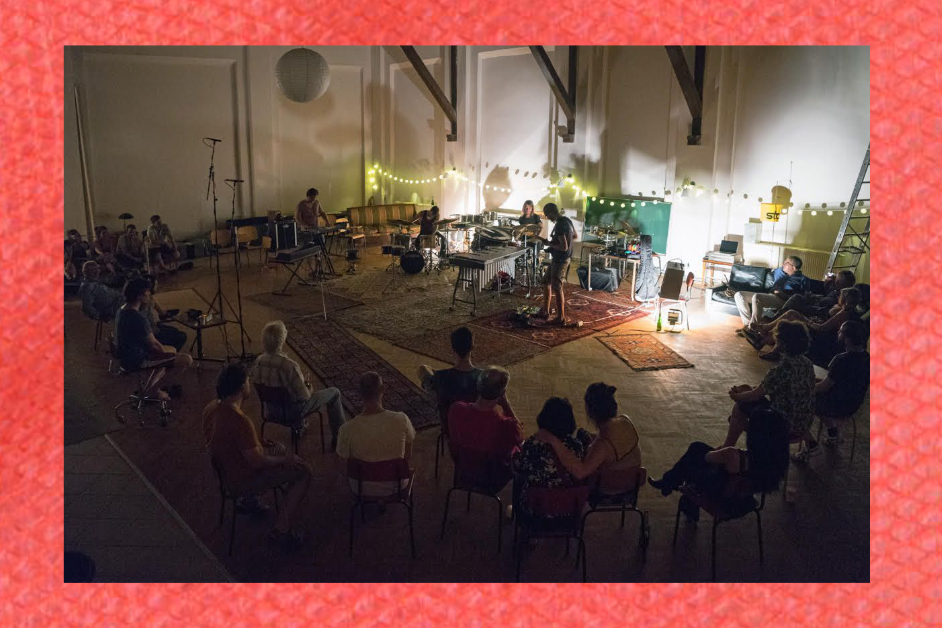
The old sport hall was turned into the “Kulturnhalle”, a place to meet and for various cultural events.
Among other things, the location has dedicated itself to intimate and special concerts. It is characterized by good acoustics and a unique atmosphere.
There is no stage in the conventional sense, but a holistic spatial concept that puts the musicians in direct contact with the audience.
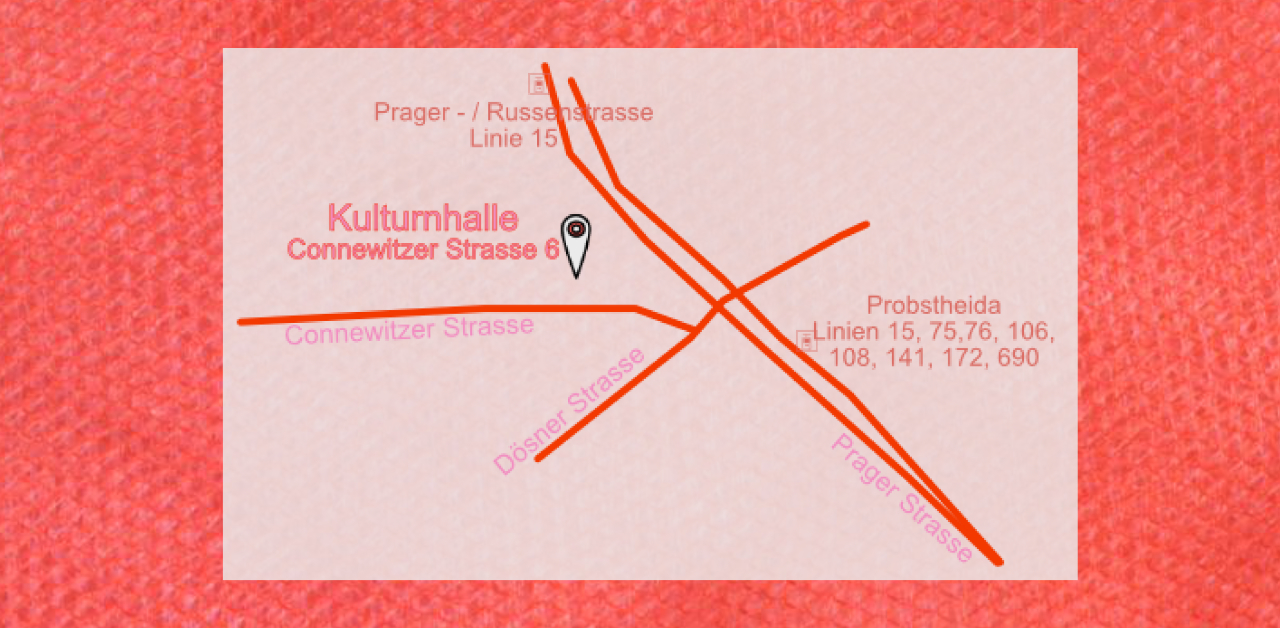

Aus der ehemaligen Turnhalle entstand die „Kulturnhalle“, ein Ort der Begegnung und verschiedener Kulturveranstaltungen.
Die Location hat sich u.a. intimen und besonderen Konzerten verschrieben. Sie zeichnet sich durch eine gute Akustik und einzigartige Atmosphäre aus.
Es gibt keine Bühne im herkömmlichen Sinn, sondern ein ganzheitliches Raumkonzept welches die Musiker in direkten Kontakt mit den Zuhörern stellt.

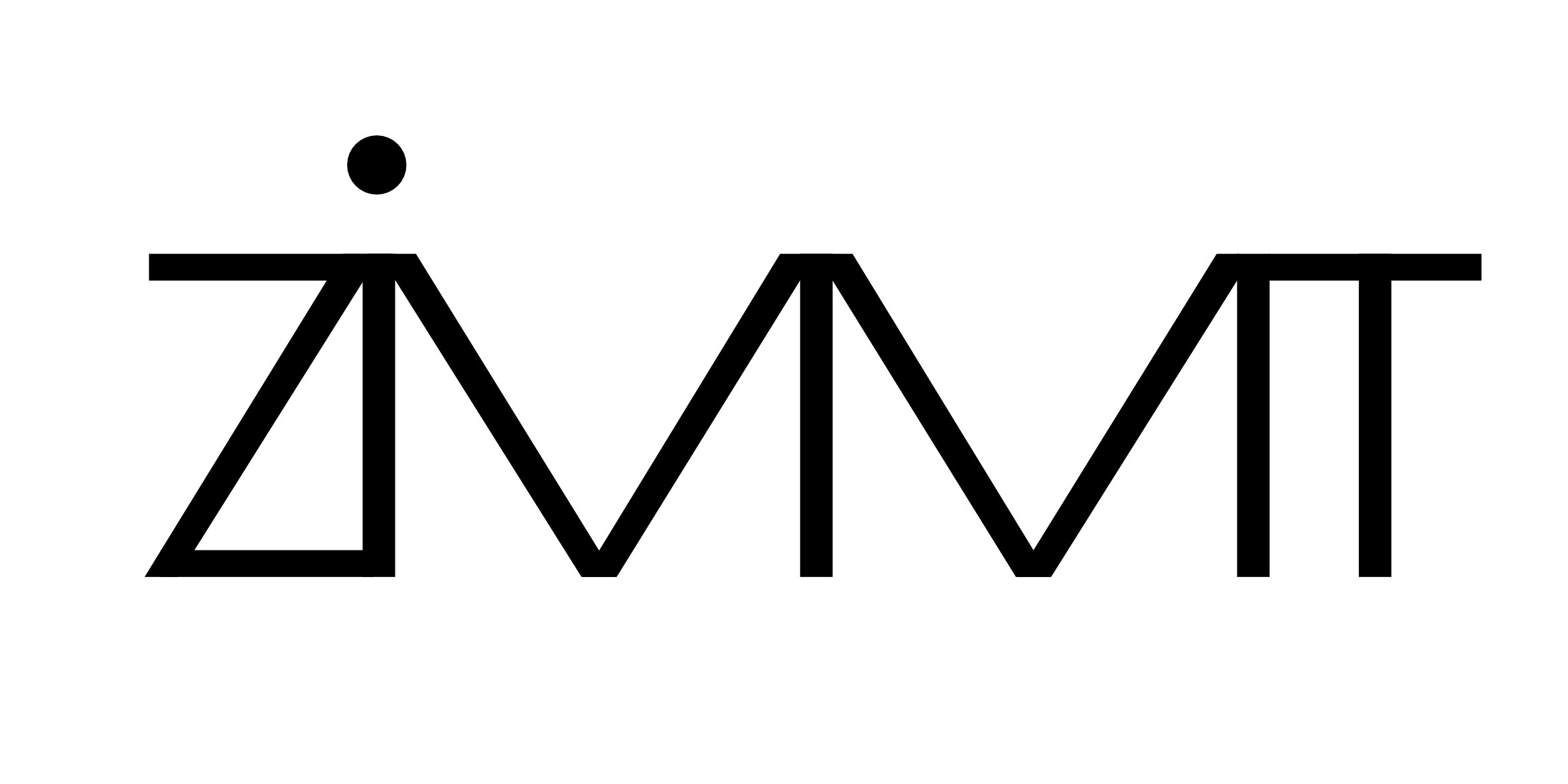
The ZiMMT – Center for Immersive Media, Music and Technology – is a hub for art, science and technology. In direct exchange about innovations in the field of immersive media technologies, developers, creative users and interested members of the public can come here together to test and experience the latest developments in the domain. You can currently follow current events around the initiative on Instagram and soon also on www.zimmt.net.
Please note: entrance only for members of the ZiMMT e.V.. Free registration available before the concerts.
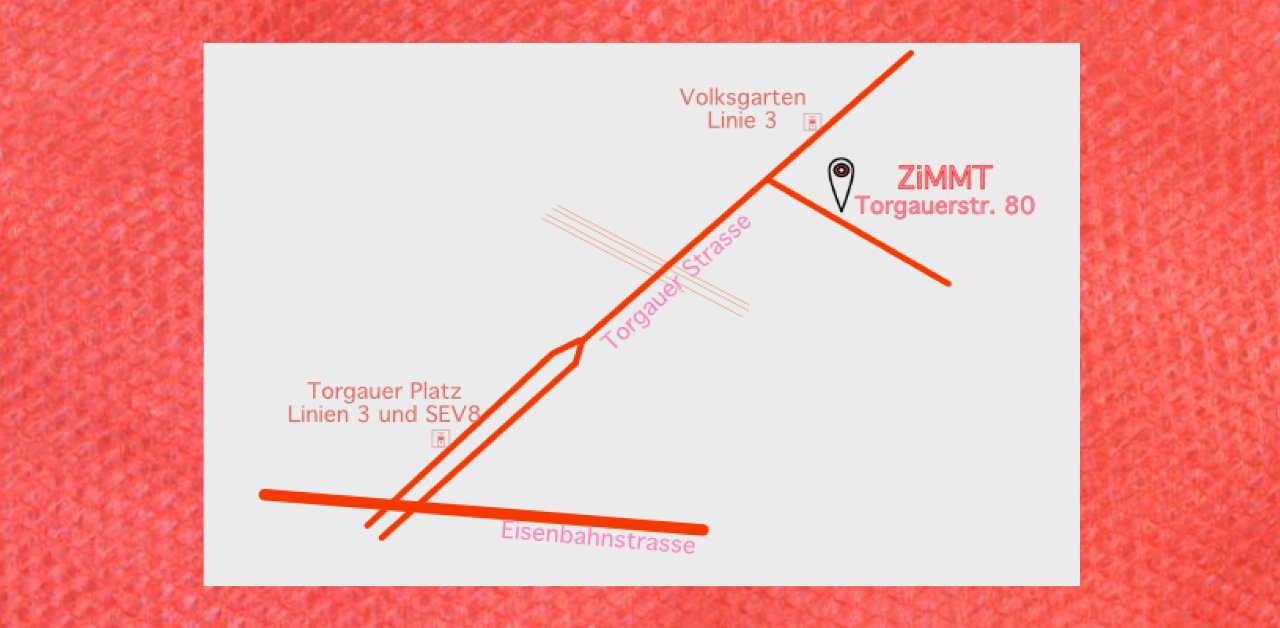

Das ZiMMT – Zentrum für immersive Medien, Musik und Technologie – ist Knotenpunkt von Kunst, Wissenschaft und Technologie. Im direkten Austausch über Innovationen im Bereich immersiver Medientechnologien können hier Entwickler*innen, kreative Anwender*innen und interessiertes Publikum zukünftig zusammenkommen, um neueste Entwicklungen zu erproben und zu erfahren. Aktuelle Geschehnisse rund um die Initiative könnt ihr momentan auf Instagram und bald auch auf www.zimmt.net verfolgen.
Hinweis: Betreten des Ortes nur für Vereinsmitglieder. Kostenlose Anmeldung vor den Konzerten.

